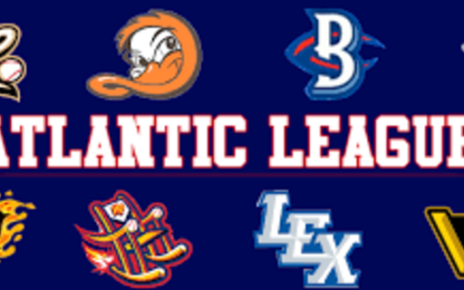In the next month, I should have a review on the site of Rob Ruck’s Raceball. The short version of the review is that it is one of the best books on baseball I have ever read. While all of it has been interesting and thought-provoking there was one issue that was touched upon that I can’t get out of my head. The integration of Major League Baseball that began with Jackie Robinson is generally viewed as a great moment in American, and baseball history. What if the reality is that it was actually bad for baseball, America, and many surrounding countries?
This is not a cut and dry issue and Ruck does not present it as such. There are truths to be found on both sides of the coin. There are many great accomplishments that only came about because of integration and for many people of color integration represents both acceptance and success. At the same time integration did not happen on terms decreed by people of color. It expressly happened on the terms of white male owners. Those owners only integrated to serve their needs and in doing so gutted the Negro Leagues as well as baseball throughout the Caribbean. They viewed players of color as commodities, the quality they bestowed upon Robinson and all who followed was only equality in that they were positioned as pawns of the owners the same as white players.
The positives of integration cannot be just swept away. First and foremost integration was a must simply for the fact that players of color deserved to be given the same right to play in MLB, and their affiliates, as white ballplayers had. Integration needed to take place because a society in which one group of people is denied access to anything based on the color of their skin is not a just society or one that any of us should want to live in. Don’t conflate the possible negative effects of integration with the destruction of color lines being a bad thing. Anyone who thinks that color lines should still exist is a racist; pure and simple.
All the above being true, there were other net positives that came about from integration. Plenty of players of color got their chance to play in MLB. Not just African-Americans, but Afro-Cubans, Dominicans, and on down the line. Players of color who could not view MLB as even being an option now has MLB right in front of them. Most of them made more money because of their time in MLB, found acceptance in white society (not completely, but more on that in a moment), and were able to excel on a national/international stage not previously truly afforded to them.
The other side of integration is the side we don’t want to acknowledge. When MLB integrated it was done on the terms of white men, with no input from players of color other than as actors taking on their prescribed role. That meant that MLB owners were able to lay out the specifics of integration just as they wanted them. The owners of Negro major league teams thought they could get a seat at the table, but they were denied any place and saw their players taken away while their franchises were destroyed. At the same time, the culture and communities of people of color were attacked. The Negro Leagues, and Caribbean leagues, were important and vital businesses within their communities. Then suddenly they were gone, or at best a lesser version of what they once were. The ensuing result was that other vital businesses within communities of color also started to close and disappear until eventually almost all of them were gone. Banks, movie theaters, laundromats, newspapers, and more that were primarily owned by people of color shuttered their doors as integration occurred and the white businesses with deeper pockets won out.
Perhaps most importantly, integration has not meant that players of color, or people of color, have been truly accepted by society at large. They have spent years dealing with ongoing racism and prejudice. Not just from regular folks, but from the governments of the countries they live in as well as from the institutions that serve them. I don’t need to tell you the numbers when it comes to the lack of people of color in management or executive positions within MLB, Minor League Baseball, and even unaffiliated baseball in non-Latin countries. The Black Lives Matter movement is not just about black men being killed by the police, it is by and large a movement that is built on the idea of finally granting black and brown people true equality with their white counterparts. We were given integration as laid out by white owners and that is why integration did not stop groups like BLM from having a reason to form.
Integration happened, a number of people benefited, and it has been celebrated for years. We need to spend more time looking at this other side of the fallout from integration. Players of color may have gained inclusion, but in the process, they lost their businesses, communities, cultures, and ways of life while never actually achieving the inclusion they were promised. There’s nothing I have said here that you can’t find in Raceball. However, it’s clear that we need to talk about this issue more and as baseball fans, we need to do a better job of wrestling with the negative outcomes of integration. Raceball quotes baseball historian John Holway on this issue and his words sum up the damage of integration better than I ever could,
“What was the real meaning of the Jackie Robinson revolution? Was it to get Jackie Robinson and the great black players into the major leagues? No! They had been playing major league caliber baseball. The real significance of the Jackie Robinson revolution was that it got the black owners and the black fans out. Now the great black players played for white owners. Now, the great black players played for white fans. They entertained whites. They used to entertain blacks. Now if you go to a game you rarely see a black in the grandstand.”
That is a reality that baseball fans need to confront head-on. No one is saying that integration should not have happened, but we need to think of its consequences. We cannot allow integration to be a seamless victory for MLB and the white owners. They need to be held accountable, always, for the segregation that came beforehand and the damage they wrought with their version of integration. Every year MLB celebrates Jackie Robinson Day. That would be a great time for fans to start thinking long and hard about why integration actually happened, who it benefited the most, and who it hurt and bankrupted the most. Then don’t stop thinking because that’s exactly what MLB wants in order for them to receive all the praise for the glorious integration of their organization.
Lead photo courtesy of David B. Stinson – Deadball Baseball




